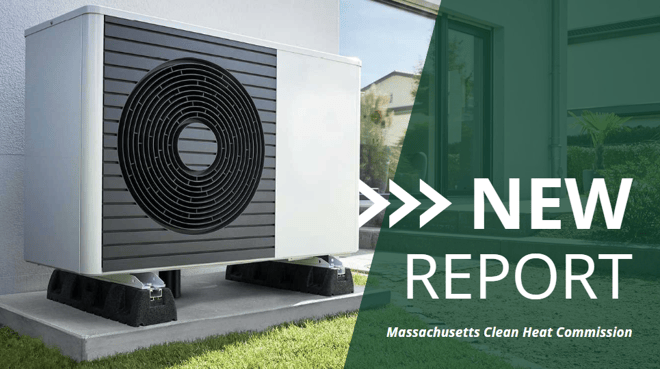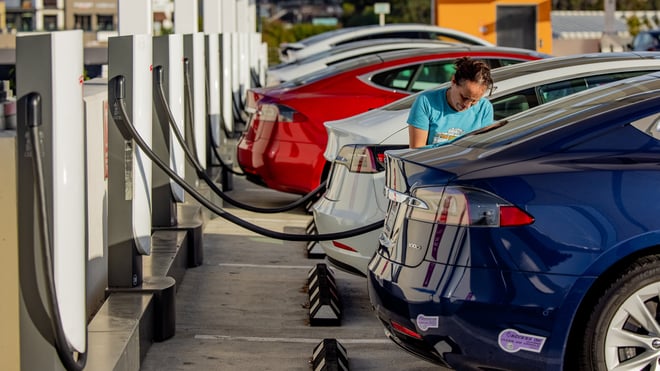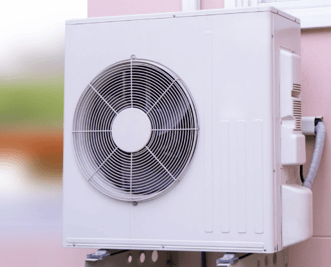An open letter to the Massachusetts Clean Heat Commission
As the Boston Globe recently reported, the Baker administration has appointed a “Clean Heat Commission” (CHC)...
 On November 30, the Massachusetts Clean Heat Commission released its long-awaited report with recommendations for “strategies and policies to achieve deep emissions reductions from heating fuels in the state.” We’ve been waiting for this report for a long time (see our open letter to the Commission from January 2022 here), but it’s important to note that the report does not set policy itself. We expect the report to be well-read by Governor-Elect Maura Healey and the legislature – the ultimate deciders for what happens now.
On November 30, the Massachusetts Clean Heat Commission released its long-awaited report with recommendations for “strategies and policies to achieve deep emissions reductions from heating fuels in the state.” We’ve been waiting for this report for a long time (see our open letter to the Commission from January 2022 here), but it’s important to note that the report does not set policy itself. We expect the report to be well-read by Governor-Elect Maura Healey and the legislature – the ultimate deciders for what happens now.
The report is 70 pages long (and we read them all) - here’s our interpretation of its top takeaways, with some comments from us in italics.
At a high level, the report:

There’s a lot of good stuff in the Clean Heat Commission's report, but we were disappointed by the absence of a couple of key ideas we think are crucial for decarbonizing the heating sector.
If phasing out fossil fuels is the goal, then we must gradually turn the spigot down on methane (the gas in our pipelines), heating oil, and propane as we increase heat pump adoption. The Commission’s report clearly is pro-electrification and that’s great. We are particularly glad to see that the words “hydrogen” and “renewable natural gas” (RNG) are not used once in the whole report, undoubtedly to the chagrin of the gas utilities.
Unfortunately, the report does leave the door somewhat ajar to these “alternative fuels” with this statement, “As necessary, advanced liquid biofuels and alternative clean fuels will be utilized on a limited basis for specific end uses, such as high-temperature processes or thermal back-up. Any such alternative fuels or approaches will be scientifically supported to reduce GHG in both the short-term and long-term after taking life-cycle emissions into account.” So, we need to remain vigilant and slam the door on the idea of mixing RNG and hydrogen with pipeline gas.

Within just a few years, we need to install 100,000 heat pumps annually. Currently, Mass Save is on a pace to install less than 15,000 heat pumps in 2022, while offering incentives of up to $10,000 each for homeowners (low-income consumers receive larger incentives). If $10,000 continues to be the incentive required to increase adoption, we need to come up with $1 billion per year.
In recent years, thanks to supply chain problems and rising demand, heat pump costs have risen. A huge amount of effort has to go into driving down the cost of heat pump installations, but until we see lower costs materialize, we have to at least think about where the $1 billion will come from or we won’t be serious about reaching our climate goals.
That’s where we see a Clean Heat Standard coming in - we see a CHS as necessary to create a market for heat pumps. If gas utilities or heating oil dealers are going to sell fossil fuels, they should have to earn an increasing amount of “Clean Heat Credits” each year. If installing heat pumps generates these credits, a CHS could kickstart the market.
 A Clean Heat Standard could provide a long-term source of funding for heat pumps. But we need an immediate source of funding too.
A Clean Heat Standard could provide a long-term source of funding for heat pumps. But we need an immediate source of funding too.
The federal Inflation Reduction Act will contribute about 20% of the heat pump tab in the form of tax credits and rebates. But that leaves a huge gap. Hopefully, the Massachusetts legislature will allocate some other federal dollars to the effort. We’re part of a coalition asking for $300 million for the Zero Carbon Renovation Fund. That’s a much-needed down payment on what we need – but for just one year. We hope the legislature will pass the Housing and Environmental Opportunities (HERO) legislation, sponsored by the HERO coalition, of which we are a part. HERO would double the current Deeds Excise Tax (from $4.56 per $1,000 to $9.12 per $1,000), upon the sale of real property, to generate approximately $300 million in new revenue each year, with the increase split evenly (50/50) between affordable housing and climate. But even with that, the electrification funding gap is still a canyon. And that is why a good CHS is necessary.
The Commission’s report will undoubtedly be on the desks of several appointees, not yet named, of the incoming Healey administration. At Green Energy Consumers, we will be ready to participate in discussions, whether legislative or regulatory. We will need your help to make the case for strong and equitable building decarbonization policies. Stay tuned.
As the Boston Globe recently reported, the Baker administration has appointed a “Clean Heat Commission” (CHC)...
It is mid-June 2020 and another day of unrest in America. As I scan the news, I learn that the environment has...
Comments